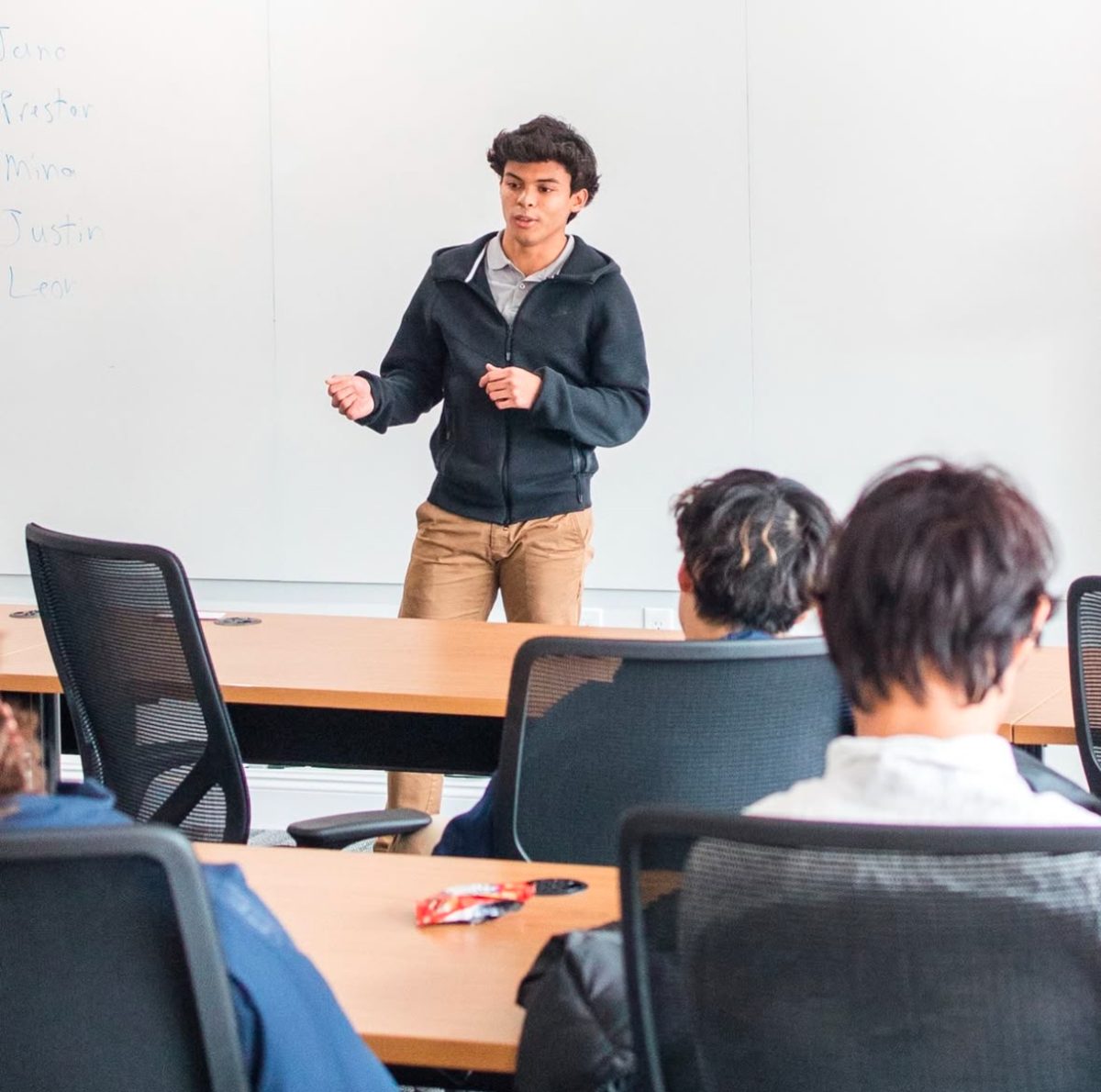The English department’s inaugural Speech Competition is underway, and students across the school are sharing their stories with the wider community, all with the hope of speaking in front of the whole school.
The students were welcomed back to campus from Thanksgiving break by an announcement from Matt Liebowitz, Head of the English Department, during assembly on Tuesday (Dec 3) in which he outlined the contest. This school-wide project, created by the English department, is something new for all students.
Katie Toole, a junior, said the competition was a surprise, and she chose a not-too-personal but entertaining topic for her speech.
“I was really nervous when I heard about the project” she said. “At first, I drew a blank and I really didn’t know what I was going to talk about. I wanted to share something that was important to me but wasn’t too personal because I didn’t want to overshare.”
Katie was nervous, not only about performing but also what kind of story she would perform. The speech project does not have a strict rubric when it comes to what story you share, just that it has to fit with the theme. Students could share a funny, sad, moving, or personal story. In Katie’s case, she believes sharing a personal story doesn’t seem appealing since it would be too serious and embarrassing to perform in front of her peers.
Katie explained how she overcame all the adrenalin of stress before performing.
“I just try to get it over with and reassure myself that all the stress will go away when I finish,” she said. “In the moment, I focus on taking deep breaths because I don’t want my voice to get shaky, and also try to find one person who I feel comfortable with to look at, or just look in between people”.
Just “getting it over with” can be one of many stress relievers. Additionally, calming onesself through breathing and just focusing on the people you are confident with can be very effective. Eye-contact can be very nerve-wracking and make students lose track of their focus.
A freshman who wished to remain anonymous.
“I would say it would depend on the setting” they said. “If you’re in an English class that you have friends with, then it’s a lot more comforting. But if it was something like stand up comedy with people I don’t know, I would be very nervous, but then I remember everyone is in the same boat as me.”
Similarly, freshmen told The Willistonian they focus on people they feel secure with compared to random people to temper their level of nervousness when public speaking.
Isabel Baxter-Paris, Senior Class President, was excited about the speech project, but expressed sympathy for students for whom public speaking is a challenge.
“I enjoy public speaking, but I recognize that it doesn’t come naturally to everyone” she said. “The great thing about this project is that we have a long time to practice our speeches–even if you aren’t used to speaking in front of large crowds, the opportunity to rehearse and thoroughly prepare should make this contest easier for everyone.”
As class president, Isabel is often put in the position to speak in front of an audience. However, even as a pro, Isabel still has obstacles when public speaking.
“I typically deal with the stress of public speaking by reminding myself of the central message that I am trying to convey” she said. “The audience will remember if the substance of your speech is compelling, not small mistakes in pronunciation or delivery.”
Again, having a clear idea of what she wants her audience to take away is very effective. In the case of having a script at hand is an obvious result of success, however, the speech project focuses on memorization in your content with small notes in your note card. Isabel makes a great point of even when making small mistakes like stuttering or mispronouncing a word, the take away or moral of the story is what really matters. With this, perfection is not what teachers are looking for, it is the way students can connect with the theme and effectively share it with your peers.
Behind the scenes, Mr. Liebowitz, explained the backstory of the speech project.
The project, he explained, came out of a multi-year curricular review in which Williston’s English department compared its curriculum with several other schools, both public and private. After English teachers visited several peer schools and spoke to the other teachers, they came to the conclusion that Williston lacked a public speaking component across all the grade levels.
“Another factor in convincing the department to move forward with the speech unit was a conversation I had with 826 Valencia, a non-profit providing writing help to underserved communities in several cities” he said. “The single most empowering thing, the Programs Manager explained, was letting students’ voices be heard, whether that’s publishing or public speaking.”





















